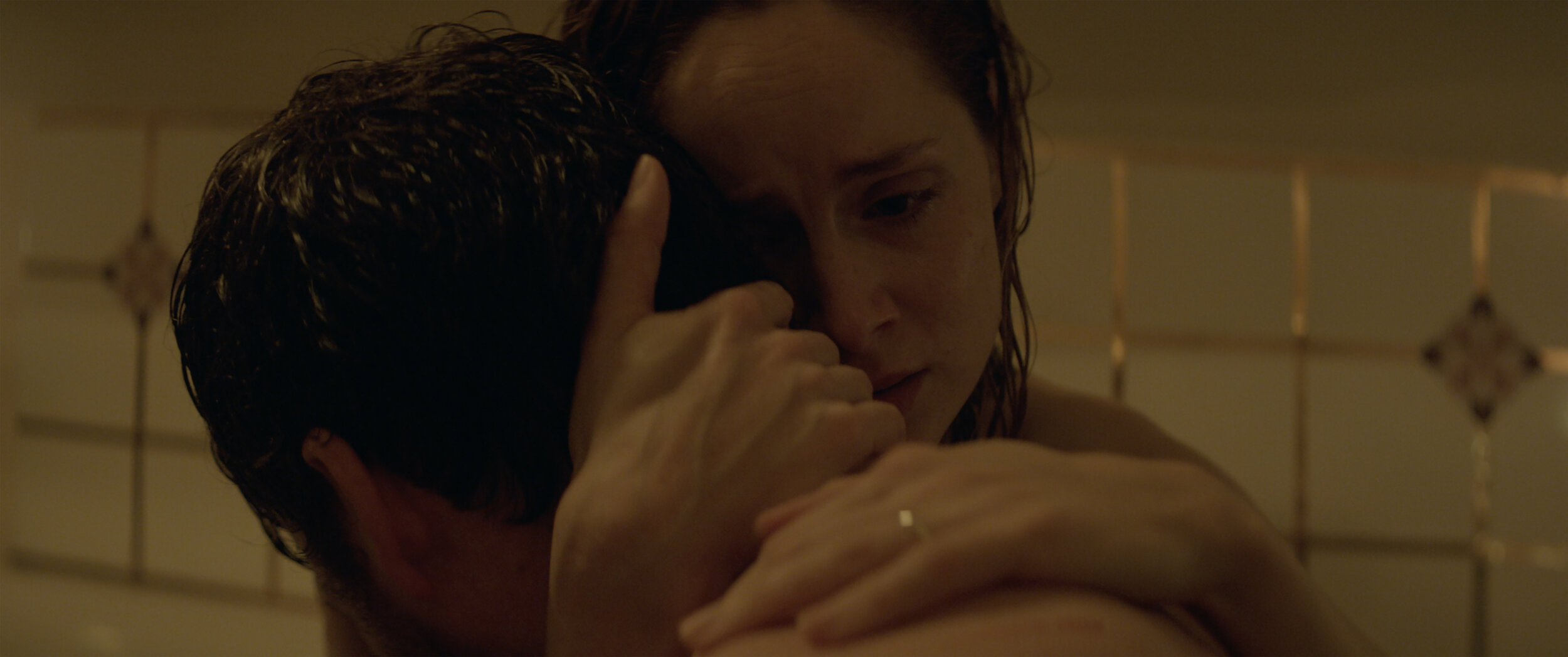Pi@LFF: Review of 'Rose: A Love Story' by Jennifer Sheridan
Featured in the BFI London Film Festival 2020, Jennifer Sheridan’s “Rose: A Love Story” is an eerie and haunting tale about the limits of what we would do for love.
Source: image.net
“Rose: A Love Story” follows a couple, Rose (Sophie Rundle) and Sam (Matt Stokoe) who live in an isolated cabin in the woods. In harsh, snowy weather conditions, the couple must survive off of the land; bathing in ice cold streams, eating hares caught in traps. However, Rose has a mysterious illness that keeps her housebound, away from the sunlight. When a stranger has to shelter in their house due to injury, their whole world turns upside down and their darkest secrets are uncovered.
The film is directed by Jennifer Sheridan, who has previously worked as an editor on TV series such as BBC Three’s “Cuckoo”. However, this film has nothing of the light and comic tone of that series. The film has a cold palette, bright piercing fluorescent lights permeate the shots, a close-up of Rose has a blue tinge, everything here is touched by frost as if in a permanent state of hibernation. Blue, vein-like cracks appear on Rose’s face, and she becomes almost like a somnambulist haunting at the edges of the shots.
Source: image.net
Perhaps the low rumble of the soundtrack is a little on the nose, signifying to the audience that they should be ready for tension and horror. With recent outcry against the “Tenet” soundtrack, it seems that “Rose: A Love Story” suffers from the same kind of bassy ambiguity.
So, is it a horror story or a love story? Sam and Rose’s relationship is placed at the forefront of the film, his protective nature is shown through aggressive images of masculinity, of guns and traps, but this is also contrasted by domestic and beautiful images of the couple in the bath and affectionately reading Rose’s book together. Rose’s own problems with her self-image due to her illness seem more poignant than finding out exactly what the illness is. It is these images that stay with you, beyond the third act being steeped in gothic horror tropes. The film explores how love and horror are not as far removed as you may think.
Perhaps the most odd activity of the film is Sam applying leeches to his legs in order to suck out some of his own blood. This metaphor could seem somewhat trite, that love itself literally sucks the blood from your veins, but in the context of the film, it seems like a darkly beautiful show of affection for his wife Rose. Although attempting to reinvent the horror genre for a modern setting, this film seems somewhat derivative of what has gone before. The performances from the actors are intriguing and nuanced, but the film feels like it stays on one emotional level throughout, and even the climax at the end doesn’t shock the audience into admiration. The film asks some great questions about the nature of love but doesn’t quite hit the highs of a genre that is constantly evolving and riffing on itself.


